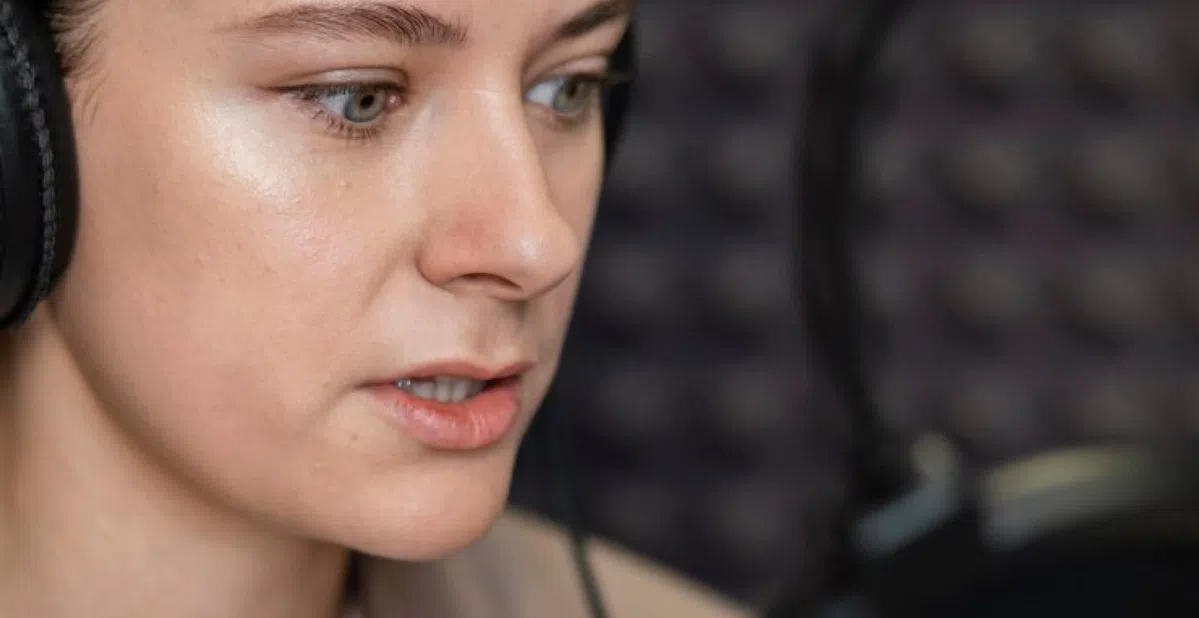Table of Contents
With the growing demand for non-English content, IMAX artificial intelligence providing voiceover and dubbing translations of his original productions worldwide. He chooses to use this for new markets and to save costs.
If you ask leaders in AI, they often say that repetitive or dangerous jobs are the first to be automated. Although professional dubbers may disagree with this character, their field is one of the first to adopt AI. At least at IMAX. The company has announced its partnership with Camb.ai, a Dubai-based startup that offers advanced AIsolutions for speech translation and dubbing. The technology has already been tested internally and is being rolled out in stages, starting with commonly used languages.
International audience
According to PwC, the entertainment industry will… continue to grow over the next five years up to a value of 3.2 trillion euros. What is particularly surprising is the increasing popularity of non-English content, even in traditionally English-speaking markets such as the US, the UK and Canada. For example, Netflix reported a 90% increase in non-English content consumption in the UK over the past three years. It seems that IMAX is now responding to this trend by using Camb.ai’s AI technology as an automatic translator. Mark Welton, president of IMAX Global Theatres, emphasizes that the partnership is aimed at both cost savings and increasing access to IMAX productions.
Just the beginning
It will not have escaped anyone’s notice that AI has made great strides in automating media content in the past year. For example, last year already recognized that Spotify will translate its podcasts using AI. apart from showed Our own editor Eric pointed out earlier this year how easy it is to reproduce themselves with the help of AI. Although companies such as IMAX are using this technology to reduce costs, it also represents a major change for the markets in which they operate.
The combination of cost savings – and our desire as consumers for the lowest price – will accelerate the development of AI. Competitors must follow suit, meaning that this cat-and-mouse game will only further change fuel, starting in the entertainment industry.
More news about him followed streaming services and lose nothing with it Clear WhatsApp channel.
2024-11-25 21:31:00
#Bad #news #IMAX #dubbers #jobs
**How can AI-powered voice duplication tools like Camb.ai be leveraged to assist voice actors in their work, rather than simply replacing them?**
## Interview: AI Dubbing – A Boon or a Bane for the Entertainment Industry?
**Introduction:**
Welcome to World Today News. Today we are discussing the growing trend of artificial intelligence in the entertainment industry, specifically focusing on IMAX’s recent partnership with Camb.ai, a company specializing in AI-powered voiceover and dubbing translations. To unpack the implications of this news, we have invited two distinguished guests:
* **Dr. Emily Chen**, Professor of Film Studies and Media Technology at the University of California, Berkeley,
* **Mr. David Riley**, a veteran voice actor with over 20 years of experience in the industry.
**Section 1: The Rise of AI Dubbing**
**Interviewer:** Dr. Chen, the article mentions that the entertainment industry is witnessing a surge in demand for non-English content. How significant is this trend, and why do you think IMAX is turning to AI to meet this demand?
**Dr. Chen:**
**(Expected Response):** The rise of streaming platforms has made international content more accessible than ever before. This, coupled with a growing global audience looking for content in their native languages, has fueled the demand for dubbing and subtitles. IMAX, being a global player, likely sees AI as a cost-effective solution to reach these new markets efficiently.
**Interviewer:** Mr. Riley, from a voice actor’s perspective, what are your thoughts on IMAX’s decision to use AI for dubbing?
**Mr. Riley:**
**(Expected Response) :** While I understand the economic rationale behind this move, I am concerned about the potential impact on the livelihoods of human voice actors. There’s an artistry and nuance to dubbing that AI may struggle to replicate.
**Section 2: Impact on the Dubbing Industry**
**Interviewer:** Dr. Chen, do you anticipate that AI will fully replace human voice actors in the near future?
**Dr. Chen:**
**(Expected Response):** I believe it’s unlikely that AI will completely replace human voice actors anytime soon. However, it’s bound to change the landscape of the industry.
**Interviewer:** Mr. Riley, what steps do you think the dubbing community should take to adapt to this changing environment?
**Mr. Riley:**
**(Expected Response):** We need to focus on specializing, developing unique voices and skills that AI can’t replicate, and perhaps collaborate with AI technology to enhance our work.
**Section 3: Ethical Considerations and the Future of Entertainment**
**Interviewer:** Dr. Chen, there are concerns about the ethical implications of using AI for creative tasks like dubbing. What are some of these concerns, and how can we address them?
**Dr. Chen:**
**(Expected Response):** We need to ensure transparency in the use of AI, address potential biases in the algorithms, and protect the intellectual property rights of voice actors.
**Interviewer:**
Both guests, looking ahead, what do you see as the future of dubbing and localization in the entertainment industry?
**(Expected responses will vary, but should touch on the interplay between AI and human talent, the importance of cultural sensitivity, and the potential for innovation in media technology.)**
**Closing:**
Thank you to Dr. Chen and Mr. Riley for sharing their valuable insights. This discussion highlights the complex issues surrounding the increasing use of AI in the entertainment industry. While AI offers exciting potential for cost reduction and accessibility, it’s crucial to weigh its impact on human creativity and livelihoods. The future of dubbing likely lies in a collaborative approach, where human talent and AI technology work together to deliver high-quality entertainment experiences to a global audience.


